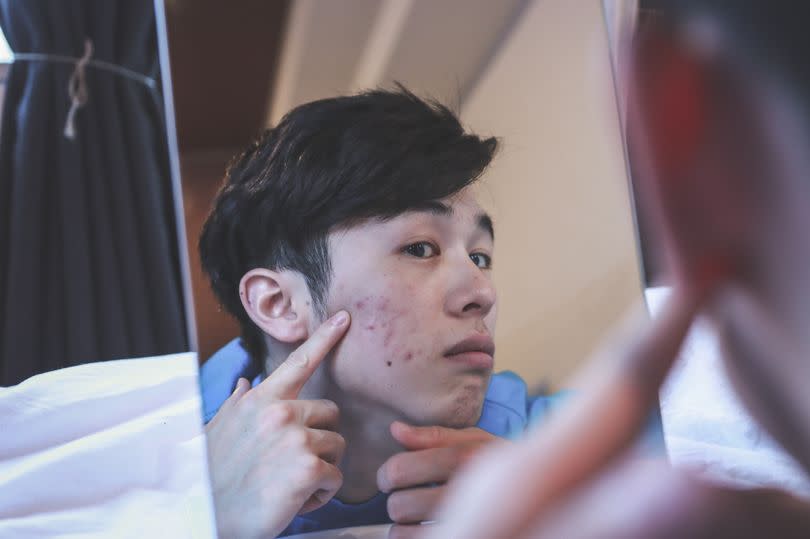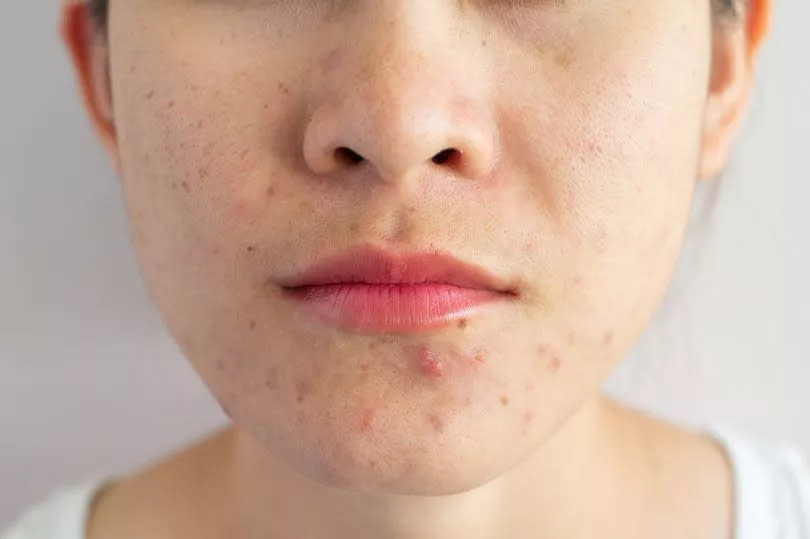NHS GP reveals 'repair' link between sleep and good skin

Not getting enough sleep can have an impact on our appearance and most notably our skin. You've heard the saying 'beauty sleep' before. But it's not just a saying, it's very valid and has lots of truth to it.
Currently two-thirds of Brits are surviving on six hours - sometimes less - of sleep per night, which over time can have a chronic debt that sees our health suffer - including our skin. While NHS guidance recommends between seven and nine hours of rest each night, many of us will struggle to achieve that due to a number of factors.
Dr Anatalia Moore, an NHS GP and skin specialist, has explained the effects of lack of sleep and how you can look to improve your nighttime routine so you feel rested. And first up, you should consider what time you're going to bed.
As well as this, you should consider what time you get ready, explaining: "I ask many of my patients what time they’re climbing under the duvet and switching off, as that can often help improve skin’s appearance, especially before reaching for skincare actives and tear trough fillers. A good night’s sleep can work wonders as well as allowing our skin time to repair and heal, while looking and feeling brighter."

She further explained that our body's cells repair at night so whilst we're asleep, our system is active. "This is what allows our skin to regenerate and repair damage," she says.
Without our much-needed shut-eye, our body can have lower cell turnover, thus, leading to a not-so-good night's sleep, giving us issues like acne, wrinkles and uneven skin tone.
She added: "Our skin also uses collagen to give it a plump and youthful appearance but without enough rest that can slow down our collagen production which leads to the development of fine lines, wrinkles, and sagging skin over time."
A lack of sleep can quickly show up on your face, with it manifesting itself in lots of ways, including skin ageing, dark circles, sallow complexion, puffy eyes, breakouts and being slower to heal. For people with conditions such as eczema or psoriasis, a lack of sleep can also trigger and cause flare-ups, leaving your skin irritated due to a dry and sensitive skin barrier.
She stressed: "It’s also important not to forget the impact that poor sleep can have on our mental health too, and poor sleep across many nights can result in stress and this then causes inflammatory hormones to rise, which further worsens skin and we can see more breakouts and faster signs of ageing. Not only this but it can also make us feel worse about our skin and appearance and result in low confidence, which is then a vicious cycle.”

Dr Anatalia's top tips for getting a good night's sleep
Start the routine early
Our bedtime routine doesn’t just have to be at 10pm when we’re climbing under the sheets. Start the routine earlier in the evening to have enough time to unwind and that includes having enough time to take your makeup off, complete your nighttime skincare routine and do all of the small things that help your brain signal to your body that it’s time to shut down and sleep.Give your body enough time to digest and decompress
Experts recommend waiting at least three hours after you've eaten to go to bed. This allows your body time to digest your food so you're not up at night with an upset stomach, indigestion, or acid reflux. And it helps you stay asleep so this can mean making sure your evening meal or even a snack has been eaten with enough time before your head hits the pillow.Build in ‘wind down’ time
Often having enough time to read, talk to your partner or just to fill in a daily journal can get pushed out when we’re tired or rushing to get some sleep. Yet it can often be a really important part of the nighttime routine and one that is important to our mental health too as it’s ‘you’ time - especially important for those of us who are parents and busy running around after our children!Drop the temperature and nodding off will be easier
Your body temperature naturally reduces in the run-up to sleep and this helps you to fall asleep at night. Taking a bath or shower in the hours before bed can help your body temperature decrease in preparation for sleep and experts believe that a room temperature of between 15 and 18 degrees Celsius is the optimum temperature for getting to sleep and staying asleep.Do what works for you
Bedtime routines don’t have to be set in stone or follow a set rule book, if you find a formula that works for you then stick to it. This can mean sleeping away from your partner if you find you feel more rested or even co-sleeping safely with your child if that means less broken sleep for both of you. The importance here is to fall asleep easily and then stay asleep to allow the body to rest, repair and heal.

 Yahoo News
Yahoo News 
